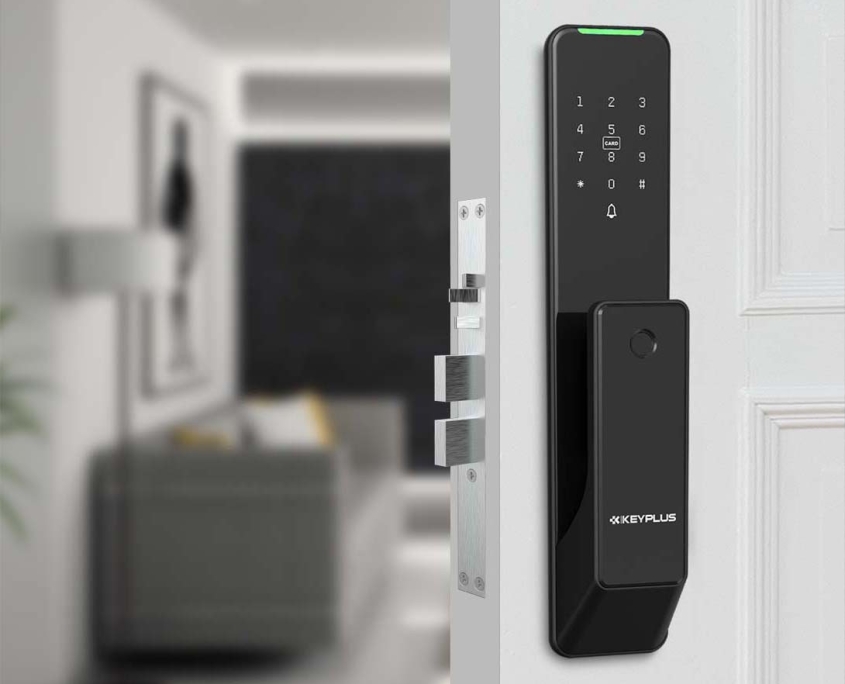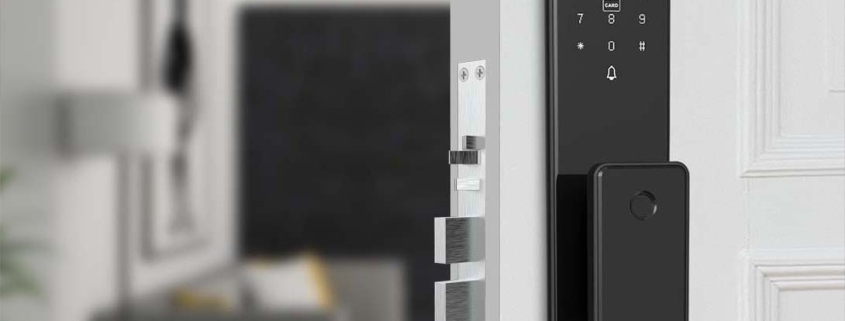What is the difference between traditional lock and digital lock?
In today’s fast-paced world, home security has evolved far beyond the simple metal key and tumbler lock. While traditional locks have been the standard for centuries, digital locks are rapidly gaining popularity for their convenience, smart features, and enhanced security.
But what exactly sets them apart? If you’re deciding between a classic deadbolt and a high-tech keyless entry system, this guide will break down the key differences, pros and cons, and help you choose the best option for your home.
1. How They Work: Mechanical vs. Electronic
Traditional Locks (Mechanical Locks)
Traditional locks operate purely through physical mechanisms—usually a series of pins, tumblers, and springs that align when the correct key is inserted. Common types include:
-
Deadbolts (single or double-cylinder)
-
Knob locks (common on interior doors)
-
Mortise locks (heavy-duty, often used in commercial buildings)
How they function:
-
Insert key → Turn → Pins align → Bolt moves → Door unlocks.
-
No electricity or batteries required.
Digital Locks (Electronic/Smart Locks)
Digital locks replace physical keys with electronic access methods, such as:
-
Keypads (PIN codes)
-
Fingerprint scanners (biometric entry)
-
Smartphone apps (Bluetooth/Wi-Fi/Z-Wave control)
-
RFID cards or fobs (keyless entry)
-
Voice control (via Alexa, Google Assistant, etc.)
How they function:
-
Enter code, scan fingerprint, or use app → Signal sent to motor → Bolt retracts → Door unlocks.
-
Most require batteries (AA/AAA or rechargeable).
2. Key Differences Between Traditional and Digital Locks
| Feature | Traditional Lock | Digital Lock |
|---|---|---|
| Security | Vulnerable to picking, bumping, and drilling | More pick-resistant; some have tamper alarms |
| Convenience | Requires carrying keys | Keyless entry (PIN, fingerprint, phone) |
| Access Control | Limited (must copy keys for new users) | Remote access, temporary codes, user logs |
| Installation | Simple, no wiring needed | May require wiring (some are DIY-friendly) |
| Power Source | None (manual operation) | Batteries (6-12 month life) or wired power |
| Durability | Lasts 20+ years with maintenance | Typically 5-10 years (electronics wear out) |
| Weather Resistance | Works in extreme temps | Some models struggle in extreme cold/heat |
| Cost | 20−150+ | 100−500+ |
3. Pros and Cons of Traditional Locks
Advantages
No Power Needed – Works even during a blackout.
Long Lifespan – Can last decades with minimal maintenance.
Lower Cost – Cheaper upfront than most digital locks.
Universal Compatibility – Fits almost any door without modifications.
Disadvantages
Lost Keys = Hassle – Rekeying or replacing locks is necessary if keys are stolen.
No Remote Access – Can’t unlock the door for guests when you’re not home.
Vulnerable to Lock Picking – Skilled burglars can bypass them in seconds.
Limited User Management – Need to make physical copies for new users.
4. Pros and Cons of Digital Locks
Advantages
Keyless Entry – No more fumbling for keys; use codes, fingerprints, or phone.
Remote Access – Unlock your door from anywhere via smartphone.
Temporary Access – Generate one-time codes for guests or service workers.
Activity Logs – See who entered and when (great for rentals or Airbnb).
Enhanced Security – Some models have auto-lock, tamper alerts, and anti-pick tech.
Disadvantages
Battery Dependency – If batteries die, you may be locked out (most have emergency power options).
Higher Cost – Premium models can cost $300+.
Shorter Lifespan – Electronics degrade faster than mechanical parts (5-10 years).
Hacking Risks – Some Wi-Fi-enabled locks can be vulnerable to cyberattacks.

5. Which Lock Is More Secure?
Traditional Lock Vulnerabilities
-
Picking & Bumping – Experienced thieves can pick a standard lock in under 30 seconds.
-
Drilling Attacks – Cheap locks can be drilled open.
-
Key Duplication – Anyone with access to your key can make a copy.
Digital Lock Security Features
-
Pick-Proof – No physical keyhole to manipulate.
-
Tamper Alarms – Some models sound an alarm if forced open.
-
Encrypted Signals – High-end smart locks use AES encryption to prevent hacking.
-
Auto-Lock – Locks itself after a set time, preventing forgetfulness.
Winner? A well-made digital lock is generally more secure against physical break-ins, but cheap or poorly designed smart locks can be hacked.
6. Best Use Cases for Each Lock Type
When to Choose a Traditional Lock
-
You want a low-cost, long-lasting solution.
-
You live in an area with frequent power outages.
-
You prefer simple, no-tech security.
-
You need a backup lock (e.g., digital lock + deadbolt combo).
When to Choose a Digital Lock
-
You hate carrying keys (or frequently lose them).
-
You want remote access (letting in cleaners, dog walkers, etc.).
-
You run an Airbnb or rental property (easy guest access).
-
You love smart home integration (voice control, automation).
7. Hybrid Solutions: The Best of Both Worlds?
If you can’t decide, consider a hybrid lock, which combines:
-
A digital keypad/fingerprint scanner for keyless entry.
-
A physical keyhole as a backup in case of battery failure.
8. Final Verdict: Which Should You Choose?
Stick with a Traditional Lock If…
-
You prioritize durability and simplicity.
-
You don’t need remote access or smart features.
-
You want a budget-friendly option.
Upgrade to a Digital Lock If…
-
You want keyless convenience and smart control.
-
You need temporary access for guests or workers.
-
You’re willing to maintain batteries and firmware updates.
Final Tip: Consider a Dual-Lock System
For maximum security, many homeowners install both:
-
A digital lock for everyday convenience.
-
A high-security deadbolt as a backup.
This way, you get the ease of keyless entry plus the reliability of a mechanical lock—ensuring your home stays safe no matter what.
Conclusion
While traditional locks are tried-and-true, digital locks offer modern convenience and advanced security features. Your choice depends on budget, lifestyle, and how much tech you want in your home security.
If you’re ready to ditch keys and embrace smart living, a high-quality digital lock is a great investment. But if you prefer simplicity and long-term reliability, a strong deadbolt might still be your best bet.
What’s your preference—old-school keys or high-tech entry?



